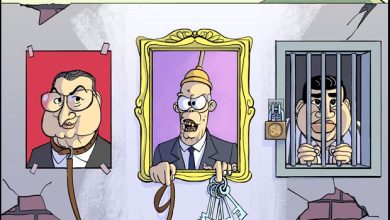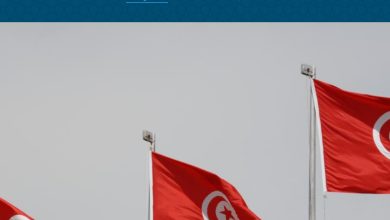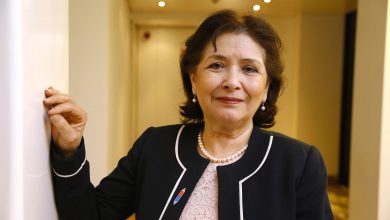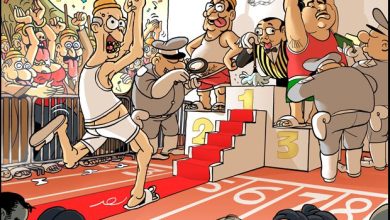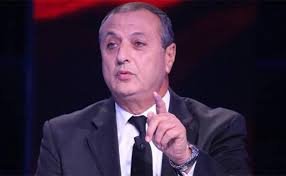Letter from UN Special Rapporteurs to President Kaïs Saïd
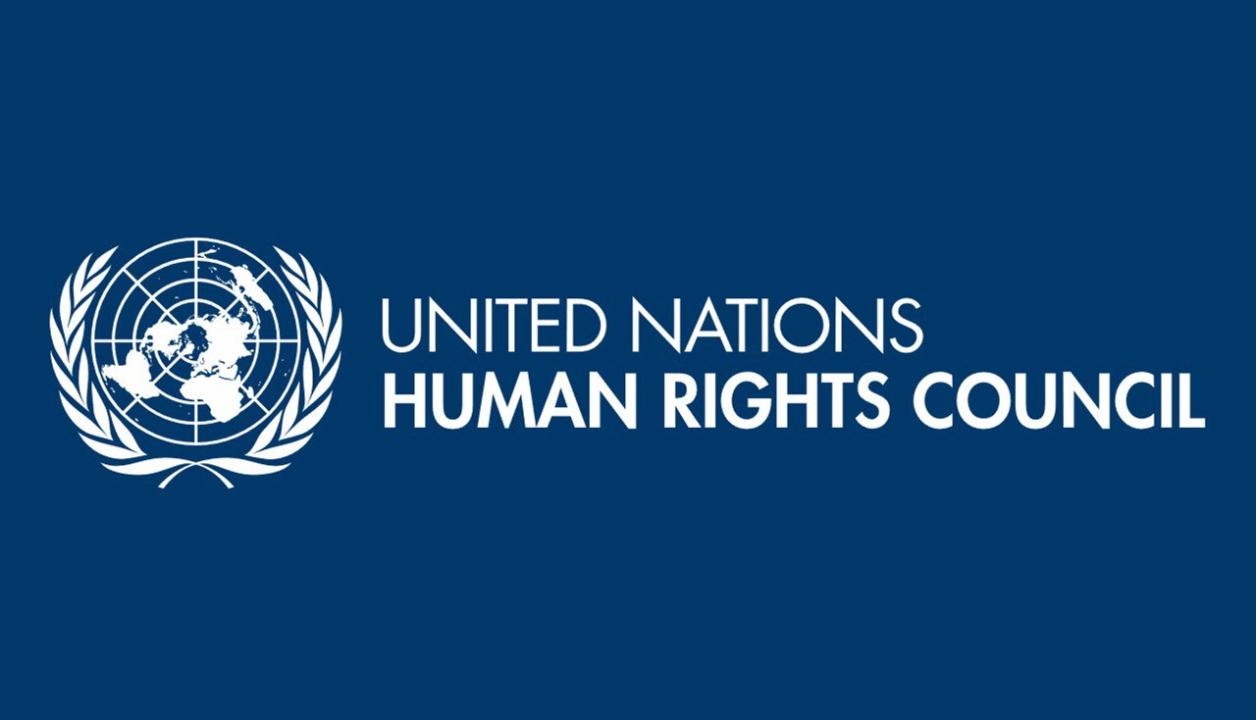
1211 GENEVA 10, SWITZERLAND
Mandates of the Special Rapporteur on the independence of judges and lawyers; the Special Rapporteur on the promotion and protection of the right to freedom of opinion and expression; the Special Rapporteur on the right to peaceful assembly and freedom of association; and the Special Rapporteur on the situation of human rights defenders
Ref: AL TUN 4/2024
(Please use this reference to reply)
May 30, 2024
Your Excellency,
We have the honour to address you in our capacity as Special Rapporteur on the independence of judges and lawyers; Special Rapporteur on the promotion and protection of the right to freedom of opinion and expression; Special Rapporteur on the right to peaceful assembly and freedom of association and Special Rapporteur on the situation of human rights defenders, in accordance with Human Rights Council resolutions 53/12, 52/9, 50/17 and 52/4.
In this context, we would like to draw the attention of Your Excellency’s Government to information we have received concerning the situation of judges and lawyers, who appear to be subject to increasing judicial repression and harassment. We draw the Government’s attention in particular to the obstacles to the work of the Association of Tunisian Magistrates (AMT) and its president, as well as to reports of arrests, torture and harassment of lawyers for exercising their right to freedom of expression, peaceful assembly and association, and of their functions as lawyers.
We take this opportunity to recall the situation of the 57 judges revoked on June 1, 2022 by the Presidential Decree (AL TUN 6/2022) since on June 1, 2024 it will be two years since they were revoked, without the Minister of Justice agreeing to reinstate the 49 judges who obtained judgments of administrative courts in their favor on August 10, 2022.
According to information received, there would be a further expansion of the influence of the Ministry of Justice within the Tunisian judicial system by exploiting the institutional vacuum that occurred after the Ministry itself created vacancies in the composition of the Supreme Council of the Provisional Judiciary, an institution established by the President of the Republic by Decree No. 11/2022, which replaced the elected Council that guaranteed the foundations of judicial independence.
Two members of the Superior Council of the Provisional Judiciary were transferred during the last judicial mobility 2023/2024 and two others retired without their replacements being appointed. This prevented the Higher Council of the Provisional Judiciary from meeting for more than 6 months, and the absence of a quorum led to its complete paralysis. The reports describe how the Department of Justice then began to use the working memorandum mechanism, arbitrarily and outside any legal framework, to bring about fundamental changes in the composition of the courts, their presidents, judges of the public prosecutor’s office, investigating judges and judicial chambers.
According to the information received so far, the working notes issued by the Ministry of Justice have included the renewal or discharge of major judicial responsibilities to the first presidents of the courts of appeal in Jendouba, Gafsa, Sfax and Gabes, and to the attorneys general of the courts of appeal in Baja, Monastir, Gabes and Sidi Bouzid, to the presidents of the courts of Kasserine, Sidi Bouzid, Ariana, Mahdia, Nabeul and Jendouba, to the prosecutors of the Republic in Sidi Bouzid, Ben Arous, Bizerte, Mahdia, Monastir, Kasserine and Tunis, as well as many judges of the public prosecutor’s office, investigating judges, judges of the council and judges of the specialized judicial branches. The notes include suspensions of work, with or without pay, outside any disciplinary proceedings, and appear to be arbitrary dismissals.
Information suggests that some transfer notes were issued following questioning of judges by the Inspector General of the Ministry of Justice about their jurisprudence, the scope of their judgments or decisions, in total violation of the independence and impartiality of judicial work. It further suggests that these changes, which occurred in the middle of the judicial year, have disrupted the functioning of the courts, appearing as retaliation or punishment. This includes the transfer of judges to departments far from their place of residence and demotion, in flagrant violation of the principle of immovability required by international standards.
AMT participates in the annual meeting of the African Group of the International Association of Judges
In the above context, the AMT was invited to participate in the meeting of the African Regional Group of the International Union of Judges (IUM). The meeting was organized by the National Association of Trial Judges of Liberia and was held in Monrovia from 5 to 10 May 2024.
The President of the AMT, Judge Anas Hmedi, requested a five-day leave to attend the annual meeting. He was denied this leave and was therefore unable to travel. The Department of Justice’s refusal contained no justification and deprived the AMT President of his constitutional right to travel as a trade union and restricted his activities.
The AMT issued a statement on 4 May 2024 protesting the fact that it’s President was denied permission to leave the country to attend the annual meeting of the IOM African Group, scheduled to begin on Monday 6 May in Monrovia.
The AMT recalled that the IOM is an international organization that brings together associations from 92 countries and that it has the ECOSOC advisory system with the United Nations, stressing that its objective is to work inter alia to support and ensure the independence of the judiciary and judges in its member States and to protect judges against all forms of discrimination.
pressure, an essential condition for the consolidation of the rule of law and the protection of rights and freedoms.
The AMT expressed its deep concern that the executive is attempting to isolate Tunisian judges, preventing them from making their voices and concerns heard, and from expressing their views and positions on issues relating to the independence of the judiciary and judges within the framework of the fundamental activity of the Union and the principle of solidarity of judges to protect the fundamental guarantees of judicial independence.
This decision undermines the right of all judges to assemble, organize, express themselves and exercise all the rights recognized to them as citizens, as well as their right to open themselves to independent international structures that work to consolidate the principles of judicial independence and to protect judges from any form of political pressure.
Arrest of lawyers and search of the premises of the Bar Association
Case of Sonia Dahmani
Sonia Dahmani is a Tunisian lawyer and columnist in several media outlets.
On 10 May 2024, she took refuge and began a protest sit-in at the premises of the Tunisian Bar Association in Tunis, fearing that she would be placed in police custody, after being informed by the clerk of the Tunis regional section that she would be summoned before the investigating judge of the Court of First Instance in Tunis. The charge against Ms. Dahmani would be related to her statements on a television program and would be based on Decree-Law No. 54.
Several lawyers reportedly attended the hearing on behalf of Sonia Dahmani and filed a request to postpone the hearing. The request was rejected by the investigating judge who decided to issue an arrest warrant for Ms. Dahmani and announced that she would be tried on the basis of Article 24 of Decree 54.
On 11 May, suspected police officers wearing black civilian clothes and hoods stormed the premises of the Tunisian Bar Association in Tunis in the evening, violently detaining Ms. Dahmani and dragging her out of the premises. It is unclear if they had an arrest warrant. Many lawyers and bystanders have also been violently abused, as shown by videos shared on social media.
In a second case, she was prosecuted by the Ministry of Justice and more specifically by the General Committee of Prisons and Rehabilitation, in accordance with the provisions of Decree-Law No. 54, for statements made on air and for “spreading false news and information with the aim of harming public security, defaming and inciting others”.
In a statement to the media, a member of the Defence Committee of lawyer Sonia Dahmani, announced the postponement of his client’s hearing previously scheduled for May 15, 2024.
Mehdi Zahgrouba case
Mehdi Zaghrouba is a Tunisian lawyer, human rights defender and member of the executive board of the Tunisian Association of Young Lawyers (ATJA).
Less than 48 hours after Ms. Dahmani’s violent detention, the premises of the Bar Association were searched again by suspected dark-clothed and hooded police and Mehdi Zaghrouba was arrested on 13 May.
Me. Zaghrouba was reportedly arrested as a result of his participation in the mobilization in favor of lawyer Sonia Dahmani at the court in Tunis. He was remanded in custody under section 46 of the decree-law organizing the profession of lawyer, a spokesman for the tribunal said.
According to the article, “in case of flagrant criminality, the judicial police initiate all proceedings except for the hearing of the lawyer. ” In a statement, the spokesman stressed that Me. Zaghrouba had assaulted two security officers while they were carrying out their duties at the Court of First Instance in Tunis. He alleges that Me. Zaghrouba also allegedly attempted to forcibly remove the two security officers from the court premises. The court spokesman noted that video footage relayed on social media and surveillance camera footage confirmed his allegations. In a statement on its official website, the Ministry of the Interior also confirms this version, considering that it is a contempt of public office. The video in question no longer appears to be available on social media.
Me. Zaghrouba denies the allegations.
The premises of the Tunisian Bar Association in Tunis were damaged during the search. Glass panels were broken, furniture was overturned and documents were thrown on the floor.
Me. Zaghrouba said that after his arrest and as soon as they put him in the “collective taxi,” the police stripped him and covered his head with a tank top. He suffered physical and verbal abuse during the journey to L’Aouina police station. He was allegedly severely beaten and beaten by police officers until he passed out.
Me’s visitors. Zaghrouba observed marks of blows, bruises and scratches on various parts of his body, including his right shoulder, back, legs, arms and that three fingers of his right hand were covered with bandages. When asked about the nature of his injuries, he stated that he did not know exactly what type of injury he was suffering from, as he was not conscious when he received medical assistance, but he remembers that they stepped on his hand. A statement from the Tunisian Bar Association after the events called for an end to “abuse of power” and violence
It follows a police raid on the Order’s headquarters and the arrest of two lawyers.
May 15, 2024, Me. Zaghrouba was presented to the investigating judge. Lawyers noticed marks on different parts of Me’s body. Zagrouba. They asked the investigating judge to mention it in the interrogation report and to postpone the hearing until it could be examined by a forensic doctor and open an investigation into acts of torture. The coroner found signs of violence on Me’s body. Zagrouba. The investigating judge informed the lawyers that the request for a medical examination had been rejected by the Attorney General on security grounds and ordered the hearing to continue. Me’s health condition. Zaghrouba quickly deteriorated, he began to vomit, then he lost consciousness. At this stage, the investigating judge decided to place Me. Mehdi Zaghrouba in custody. Me. Zaghrouba was transferred to the hospital by ambulance, and later that night he was transferred to Borj el Amri civilian prison.
Chawki Tabib case
The barrister of the Bar Association, former president of the National Anti-Corruption Authority and human rights defender, Mr. Chawki Tabib, began a hunger strike and an open sit-in at the premises of the Bar Association of Tunisia on April 30, 2024.
The former president of the National Anti-Corruption Authority said in a press release that he had taken the decision to protest “the judicial harassment against the lawyers and himself, the smear campaigns he has been subjected to for the past four years and the travel ban against him. ”
Me. Chawki Tabib was transferred to the Economic and Financial Judicial Centre on 1 April 2024. His defence committee stated that he faces charges of forgery by a public official, possession and use of forged documents, and dissemination of writings to third parties without the permission of their owner. The complaint was filed by a business manager in 2020, when Me. Chawki Tabib was the head of the National Anti-Corruption Authority. He is also subject to a travel ban from January 8, 2024.
Me. Tabib announced on May 14 on social networks that he was ending the sit-in he had observed at the premises of the Bar Association in Tunis. He explained that he took this resolution to focus on the issues that are beset his colleagues right now.
Without wishing to prejudge the accuracy of the information received at this stage, we wish to express our grave concern at the current precarious situation of judges, lawyers and human rights defenders, who appear to be subject to Increasing repression and judicial harassment.
In particular, we are concerned about the series of actions taken that, separately and in combination, appear to be aimed at undermining the independent functioning of these institutions in the country. If these reports are confirmed, this course of action would constitute a violation of international human rights standards concerning the right to a fair trial and the independence of the judiciary.
In this regard, we wish to recall that the right to a fair and public trial before an independent and impartial tribunal is enshrined in international human rights standards and that a competent and independent tribunal is one of the guarantees of a fair trial. The requirement of independence concerns, inter alia, the procedure and qualifications for the appointment of judges, guarantees of the security of their functions and guarantees of respect for their independent decisions. This requirement would be closely related to the allegations of actions undertaken by the Department of Justice that are the subject of this communication.
We are also very concerned about information received regarding measures that could be seen as retaliation against the President of the AMT for his monitoring of the current situation and for acting in response to the dismissal of 57 judges. The Special Procedures had already addressed Judge Hmedi’s situation in communication AL TUN 6/2022 of August 2022.
In accordance with the Universal Declaration of Human Rights, judges enjoy, like other citizens, freedom of expression, belief, association and assembly; however, in exercising these rights, judges must always conduct themselves in such a way as to safeguard the dignity of their office and the impartiality and independence of the judiciary.
Judges are free to form and join associations of judges or other organizations in order to represent their interests, promote their professional training and protect their judicial independence.
With regard to lawyers, we are extremely concerned about the allegations of violent detention, torture and reprisals against Ms. Dahmani, Me. Zahgrouba and Me. Tabib, testifying to increasing judicial repression and harassment of lawyers representing people involved in political affairs in Tunisia.
We are particularly concerned that these attacks were perpetrated because of the legitimate exercise of their professional functions as lawyers, and the legitimate and peaceful exercise of the promotion and defence of human rights. We would like to emphasize that international human rights standards provide that lawyers have the right to carry out their professional duties without being threatened, intimidated or harassed. We take this opportunity to recall that the international human rights treaties that bind Tunisia have been interpreted as recognizing the crucial role of lawyers in guaranteeing a fair trial, providing legal assistance in the context of economic, social and cultural rights, and guaranteeing equal access to the judicial system.
If proven, these allegations are likely to constitute a serious violation of the independence of judges and lawyers, the freedom and security of persons, freedom of expression and opinion, freedom of association, the right to participate in the conduct of public affairs and the right to a fair trial, as guaranteed by articles 5, 9, 19, 20 and 21 of the Universal Declaration of Human Rights, and articles 7, 9, 14, 19, 21, 22 and 25 of the International Covenant on Civil and Political Rights, ratified by Tunisia on 18 March 1969.
In connection with the facts alleged above, please refer to the attached annex, which sets out the texts relating to established legal instruments and other standards in the field of human rights.
As it is our responsibility, under the mandates entrusted to us by the Human Rights Council, to seek your cooperation in bringing to light the cases that have been brought to our attention, we would be grateful to Your Excellency’s Government for its comments on the following:
1. Please provide us with any additional information or comments in connection with the above allegations.
2. Please indicate the legal and factual basis for the Department of Justice & apos; s decision not to allow Judge Hmedi & apos; s request for leave to travel to Liberia. Please explain how these measures comply with the judicial safeguards applicable under the Obligations.
3. Please indicate the legal and factual basis for the decision of the Public Prosecutor’s Office and the Tunis Court of First Instance to arrest Ms. Dahmani and Ms. Me. Zahgrouba. Please explain how these measures are consistent with the applicable judicial safeguards under human rights and international law obligations.
4. Please indicate what measures have been taken to ensure that all lawyers, such as Me. Zahgrouba, Ms. Damani and Me. Tabib, be able to work in a supportive environment and exercise their legitimate activities and fundamental rights, including freedom of expression and freedom of peaceful assembly and association, without fear for their safety.
This communication, as well as any response received from your Excellency’s government, will be made public within 60 days on the communications website. They will also be available subsequently in the regular report submitted to the Human Rights Council.
Pending a response from you, we ask the Government of Your Excellency to take all necessary measures to ensure the protection of the rights and freedoms of the individuals mentioned, to investigate the alleged violations and to bring those responsible to justice. We also ask your Government to take, if necessary, all necessary measures to prevent a recurrence of the above-mentioned events.
We may publicly express our concerns in the near future as we consider that the information received is sufficiently reliable to indicate an issue that warrants immediate attention. We also believe that the public should be informed of the potential repercussions of the alleged events. The press release will indicate that we have contacted Your Excellency’s Government to clarify the matter.
Please accept, Your Excellency, the assurance of our high regard.
Margaret Satterthwaite
Special Rapporteur on the independence of judges and lawyers
Irene Khan
Special Rapporteur on the promotion and protection of the right to freedom of opinion and expression
Gina Romero
Special Rapporteur on the right of peaceful assembly and freedom of association
Mary Lawlor
Special Rapporteur on the situation of human rights defenders
Annex
References to established human rights legal instruments and standards
In connection with the facts alleged above, we draw the attention of Your Excellency’s Government to the provisions of the International Covenant on Civil and Political Rights (ICCPR) ratified by Tunisia on 18 March 1969.
Article 9 guarantees the right of every person to liberty and security of his or her person, including the prohibition of arbitrary arrest and detention, the right of every person arrested to be informed, at the time of his or her arrest, of the reasons for his or her arrest, and the right of every person arrested to be immediately brought before a judge or other magistrate authorized by law to exercise judicial functions. We also recall that the arrest and detention of an individual as a result of the exercise of his or her rights and freedoms guaranteed by articles 7, 13, 14, 18, 19, 20 and 21 of the Declaration
the universality of human rights and by articles 12, 18, 19, 21, 22, 25, 26 and 27 of the Covenant may be regarded as arbitrary.
We also wish to draw your attention to General Comment No. 35 of the Human Rights Committee, which states that States should ensure that all persons deprived of their liberty are promptly informed of their rights and that they enjoy all basic legal guarantees from the outset of their detention, including prompt access to a lawyer of their choice and confidential interviews with that lawyer. For a person deprived of liberty, including in the case of house arrest, the right to access a lawyer is a prerequisite for access to other rights, such as the right to challenge the legality of detention, and is a safeguard against violations of a person’s physical and mental integrity. Furthermore, in its general comment 32 (2007) on article 14, the Human Rights Committee stressed that the right to equality before the courts and tribunals and to a fair trial is a key element of the protection of human rights and a procedural means of safeguarding the rule of law (CCPR/C/GC/32, para. 2).
Article 14 of the International Covenant on Civil and Political Rights, ratified by Tunisia, provides, inter alia, the principle of equality before competent, independent and impartial tribunals, the presumption of innocence, the provision of time and facilities for the preparation of the defence and the right of the accused to communicate with counsel of his choice. The guarantees of a fair trial may never be subject to derogations that would circumvent the protection of irrevocable rights (CCPR/C/GC/32, para. 6).
We also draw the attention of Your Excellency’s Government to article 9, paragraph 3, of the International Covenant on Civil and Political Rights, which stipulates that any person arrested or detained on account of a criminal offence must be promptly brought before a judge or other magistrate authorized by law to exercise judicial functions and has the right to be tried within a reasonable time or released.
Article 14(1) of the International Covenant on Civil and Political Rights enshrines the requirements of independence and impartiality of the judiciary. As stated by the Human Rights Committee, these are absolute rights which cannot be
be subject to no restrictions (general comment 32, para. 19). As the Human Rights Committee has also pointed out, they protect “the effective independence of the judiciary against political interference by the executive and legislative branches. ” States must take concrete measures to ensure the independence of the judiciary” (see ibid. ).
The Basic Principles on the Independence of the Judiciary, adopted by the United Nations in 1990, stipulate that all governmental and other institutions must respect and comply with the independence of the Judiciary (principle 1) and that judges must rule on cases impartially, on the basis of facts and in accordance with the law, “without any restriction and without any undue influence, incitement, pressure, threat or interference, direct or indirect, by anyone or for any reason” (principle 2).
The fundamental principles also state that “no undue or unjustified interference shall be made in the judicial process” (principle 3), and that everyone has the right to be tried by ordinary courts in accordance with the procedures established by law (principle 3), 5). The principle of judicial independence “allows and obliges the judiciary to ensure that judicial proceedings are conducted in accordance with the law and with respect for the rights of the parties” (principle 6).
Principle 8 provides that, in accordance with the Universal Declaration of Human Rights, members of the judiciary have, like other citizens, the right to freedom of expression, belief, association and assembly; however, in exercising these rights, judges must always conduct themselves in such a way as to preserve the dignity of their office and the impartiality and independence of the judiciary. The standards also provide that judges are free to form and join associations of judges or other organizations in order to represent their interests, promote their professional training and protect their judicial independence (principle 9).
We also draw the attention of Your Excellency’s Government to articles 19, 21 and 22 of the International Covenant on Civil and Political Rights, which guarantee, respectively, the right to freedom of expression and opinion and the right to freedom of peaceful assembly and association. We also recall that the right to freedom of expression includes political speech, commentary on personal and public affairs, electoral propaganda, human rights debate, journalism, cultural and artistic expression, teaching and religious speech. Restrictions on the right to freedom of expression must be consistent with the requirements set out in section 19(3), i. e. they must be provided for by law, have a legitimate purpose, and be necessary and proportionate. It is up to the State to demonstrate that these restrictions are compatible with the Covenant.
We would also like to refer Your Excellency’s Government to the Basic Principles on the Role of the Bar, adopted by the Eighth United Nations Congress on Crime Prevention and the Treatment of Offenders, held in Havana, Cuba, from 27 August to 7 September 1990.
Principle 16 sets out the obligation for public authorities to ensure that lawyers (a) are able to exercise all their professional functions without hindrance,
intimidation, harassment or undue interference; (b) be able to travel and consult their customers freely, both at home and abroad; and (c) are not subject to, or threatened with, prosecution or financial or other sanctions for any action taken in accordance with their recognized professional obligations, standards and ethics. Furthermore, when the safety of lawyers is threatened in the performance of their duties, they must be adequately protected by the authorities (principle 17). Finally, lawyers should not be equated with their clients or the cause of their clients because of their duties (principle 18).
We also draw your attention to the fundamental principles set out in the Declaration on the Right and Responsibility of Individuals, Groups and Organs of Society to Promote and Protect Universally Recognized Human Rights and Fundamental Freedoms, also known as the “United Nations Declaration on Defenders”. In particular, articles 1 and 2 of the Declaration state that everyone has the right to promote the protection and realization of human rights and fundamental freedoms at the national and international levels, and each State has the primary responsibility and duty to protect, promote and implement all human rights and fundamental freedoms.
In addition, we wish to draw the attention of Your Excellency’s Government to the following provisions of the United Nations Declaration on Defenders:
– Article 5(a) and (b), which provide that everyone has the right to peacefully assemble and assemble, to join and participate in non-governmental organisations, associations or groups, in order to promote and protect human rights and fundamental freedoms;
– Article 6(c), which provides that everyone has the right, individually or in association with others, to study, discuss, assess and assess respect, both in law and in practice, for all human rights and fundamental freedoms and, by such and other appropriate means, to bring the matter to the attention of the public; and
– article 9, para. Article 3(c), which establishes that everyone has the right to provide and render legal assistance for the defence of human rights and fundamental freedoms.
